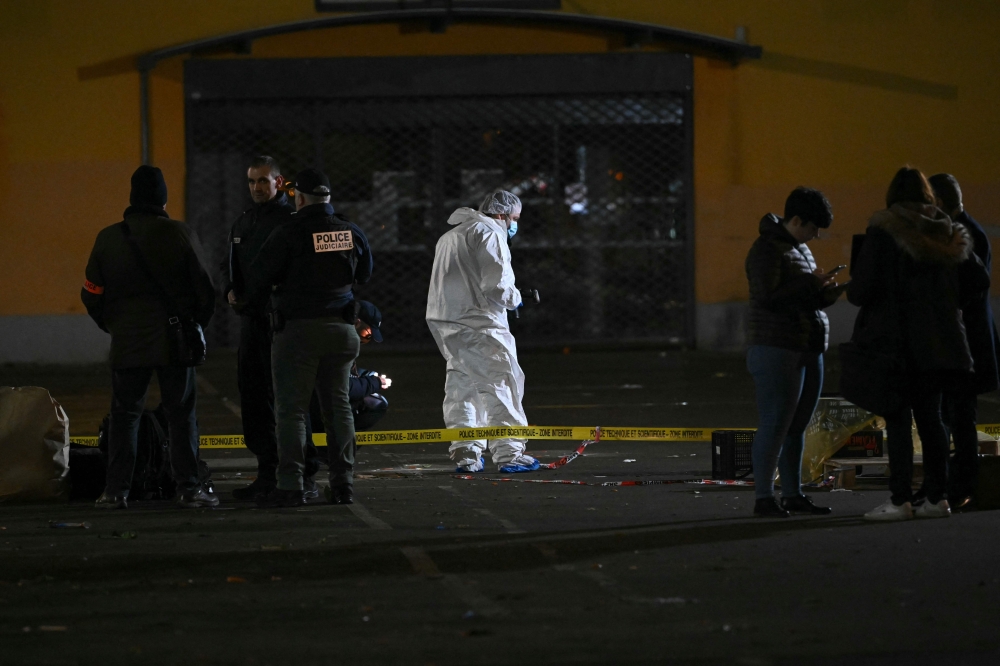
The Colorado Supreme Court announced on Monday that it will review whether the Court of Appeals correctly overturned a woman's felony convictions for child abuse resulting in death due to an inadequate jury instruction. Hannah Marshall, 8, and Makayla Roberts, 10, were discovered dead and decomposing in a vehicle located on Frederick “Alec” Blair's Norwood farm in 2017. A forensic examiner was unable to conclusively state the cause of death because of the condition of the girls' bodies, but evidence suggested long-term malnourishment near the end of their lives.
Among those charged was Madani Ceus. Jurors heard she was the spiritual leader of the group of itinerant adults and children living on the farm. At some point, the victims were left to live in a car with no food.

Ceus directed that no one contact them. Jurors convicted the children's mother of murder and Ceus' husband of child abuse resulting in death. Blair also received a 12-year prison sentence for his involvement.
Following her own convictions, Ceus contended the trial judge incorrectly instructed the jury about the charges. Under Colorado law , child abuse is a misdemeanor that can be committed in three ways: • By causing an injury to a child's life or health • By permitting a child to be unreasonably placed in a life- or health-threatening situation • By engaging in a continued pattern of malnourishment, lack of proper medical care, cruel punishment, mistreatment, or an accumulation of injuries leading to death or serious injury The crime becomes a felony if a person acts knowingly or recklessly and the child abuse results in death. Colorado's template jury instructions contain a special form asking jurors, if they find a person committed child abuse, "Did the child abuse result in death?" San Miguel County District Court Judge Keri A.
Yoder gave jurors an instruction form indicating they could find Ceus guilty of first-degree murder or the lesser charge of child abuse resulting in death. The jury acquitted Ceus of murder and found her guilty on two counts of child abuse resulting in death, for which she received 64 years in prison. On appeal, Ceus argued the instruction Yoder gave to jurors, which deviated from the template, only required a finding of death for the third method of child abuse, not for the other two possible methods.
A three-judge panel for the Court of Appeals agreed the defect meant Ceus only stood convicted of misdemeanor child abuse. "Without an instruction requiring the jury to find beyond a reasonable doubt that Ceus’s abuse resulted in the children’s death, we are unable to conclude the instructional error was harmless," wrote Judge Stephanie Dunn. Colorado Court of Appeals Judge Stephanie Dunn listens during the case of People v.
Dooley at Fort Lupton High School on Tuesday, April 2, 2024 in Fort Lupton, Colorado. The Colorado Court of Appeals and Supreme Court hold "Courts in the Community" events for students to learn about the justice system and hear real cases. (Rebecca Slezak For The Denver Gazette) The Colorado Attorney General's Office appealed to the Supreme Court and argued the context of the trial made it obvious to jurors they needed to determine whether Ceus' child abuse resulted in the victims' deaths.
"Throughout trial the court, the prosecutor, and defense counsel consistently referred to the charge as child abuse resulting in death," wrote First Assistant Attorney General Erin K. Grundy. "So, the jury’s only options were to: (1) convict of murder, (2) convict of child abuse resulting in death, or to (3) acquit of both charges.
" Meanwhile, Ceus also appealed the Court of Appeals' conclusion that there was sufficient evidence to convict her of child abuse resulting in death. She argued it was not a crime to disassociate from someone else's children on the farm. "Ceus did not have a duty to continue associating with and feeding the healthy children of another woman who possessed adequate capacity and resources," wrote public defender Lisa Weisz.
The Supreme Court agreed to look at both issues, and also answer whether Ceus' felony convictions could stand even if the jury instruction was faulty. The case is People v. Ceus.
.















